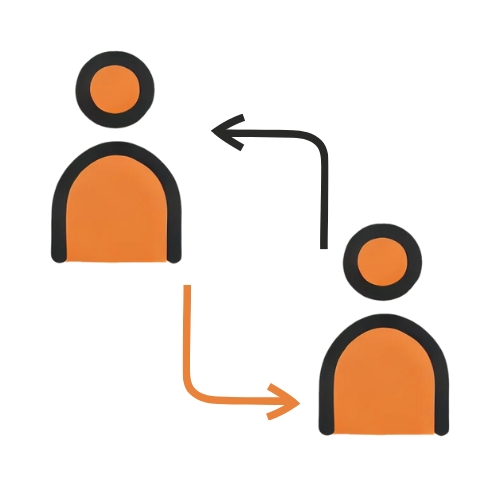
If you are unsure whether a short-term or long-term loan suits your needs, it is important to understand how each works. The term of a loan is an agreement between lender and borrower that sets out how the borrowed amount will be repaid over a fixed period, which can range from a single month to as long as 30 years. Repayments usually include interest, which may be fixed or variable, and this structure determines whether the loan is classified as short or long-term. This article explores the pros and cons of both options to help you make an informed decision.
Key Takeaways
- Short-Term Loans Offer Speed and Flexibility: These loans are ideal for quick access to smaller amounts of money, often approved within 24 hours, and typically do not require collateral. They suit temporary financial needs but usually come with higher interest rates.
- Long-Term Loans Provide Larger Funding with Lower Interest: Long-term loans are better suited for large purchases or investments, with lower interest rates and extended repayment periods. However, they often require collateral and take longer to process.
- Loan Choice Depends on Financial Goals and Ability to Repay: Choosing between short- or long-term loans depends on how much you need, how soon you need it, and your ability to afford the monthly repayments. Each loan type has trade-offs in cost, risk, and convenience.
Key Differences Between Short and Long-Term Loans
Before taking out a loan, it is important to weigh your options carefully. The right choice will depend on your financial situation and what you need the money for. To help you decide, here are the main differences between short-term and long-term loans that every South African borrower should know.
Side by Side Between Short and Long-Term Loans
| Factor | Long-Term Loan | Short-Term Loan |
|---|---|---|
| Loan Amounts | Long-term loans usually involve larger sums, often from R50 000 up to R300 000 or more. They are designed to fund major purchases or investments where substantial capital is required. | Short-term loans typically range from as little as R100 up to about R15 000. They are intended for smaller, urgent financial needs and are repaid quickly. |
| Interest Rates | Interest rates are generally lower, since repayments are spread over many years and the lender’s risk is reduced. However, the total cost of interest can add up over time because of the long repayment period. | Interest rates are usually much higher, as lenders need to recover costs quickly and account for the higher risk of default. The shorter the term, the higher the rate tends to be. |
| Monthly Instalments | Instalments are smaller and more manageable each month because the debt is spread over a longer period. This can ease monthly budgeting but may mean paying more interest overall. | Instalments are higher each month, since the repayment term is shorter. This can put strain on your budget, but you settle the debt far quicker. |
| Application Process | Requires a full affordability and creditworthiness assessment. Lenders check income, employment stability, debt levels, and credit score. Approval may take several days or weeks. | The process is faster and less strict, with fewer documents required. Many lenders offer approval within 24 hours, making it suitable for urgent cash needs. |
| Loan Term Length | Typically ranges from 10 to 30 years. This gives borrowers more time to repay but also ties them to a long financial commitment. | Usually between 1 month and 5 years, offering a short repayment horizon but requiring stronger short-term repayment capacity. |
| Secured or Unsecured | Often secured against assets such as property, vehicles, or investments. If repayments are not met, the lender can repossess the collateral to cover the debt. | Most are unsecured, so no collateral is needed. Some lenders may still request a small asset, such as a car, depending on the risk profile. |
| Purpose of the Loan | Best suited for significant financial goals such as buying a home, financing a car, paying for tertiary education, or growing a business. | Often used for smaller expenses such as medical bills, school fees, unexpected emergencies, or bridging gaps in income. |
| Flexibility | Repayment terms are less flexible and usually fixed for the entire loan term. Early settlement may be possible but could include penalty fees. | More flexible, as repayment plans are shorter and can sometimes be settled early without heavy penalties. |
| Accessibility | Suited for borrowers with steady income, good credit scores, and collateral. Applicants with weaker financial profiles may struggle to qualify. | More accessible for those with weaker credit history or limited assets, though interest rates will be higher and approval may still depend on affordability checks. |
| Speed of Access to Funds | Slower, as applications require more thorough checks and verification. It may take several days or weeks for the loan to be finalised. | Very fast, with many lenders releasing funds within 24 to 48 hours. Designed to meet urgent or short-term needs. |
| Risk to Borrower | The risk is losing valuable collateral such as a house or car if you cannot keep up with repayments. There is also the risk of being tied to debt for decades. | The risk lies in the high cost of borrowing. Missing a repayment can quickly lead to penalties, fees, and worsening debt problems. |
| Overall Cost | Although the monthly instalments are smaller, the total repayment cost may end up higher due to the long loan term. | The total cost is often lower because the loan is repaid quickly, but the interest rate and fees make the short-term cost much higher. |
When weighing short-term and long-term loan options, unsecured loans often stand out for their simplicity and accessibility. Explore the advantages unsecured loans provide quick access to funds without the hassle of collateral, making them an appealing option for those looking to avoid the commitment of asset-backed lending.
About Arcadia Finance
Arcadia Finance makes borrowing simple. Choose from 19 reliable, NCR-registered lenders with no application costs. Experience a fast, transparent process tailored to your financial circumstances.

Advantages of Short-term Loans
- No Collateral Required: Borrowers are not required to use assets such as a home or vehicle to secure the loan. Many lenders offer short-term credit without needing any form of security, making these loans more accessible to people who may not have substantial resources or a steady cash flow.
- Flexible Approval Criteria: Loan providers often assess more than just credit history. They may also consider your income, monthly expenses, and existing debts, which can make approval more achievable even if your credit record is not perfect.
- No Long-Term Financial Obligation: Short-term loans are designed to be settled quickly, often within three months. This allows you to manage temporary budget shortfalls without being locked into a lengthy repayment schedule, and many borrowers find it less stressful to clear the debt within weeks or months.
- Fast Access to Funds: Approved funds are usually deposited within 24 to 48 hours. With fewer requirements and less paperwork than traditional banks, these loans provide a quicker turnaround, making them a practical choice for urgent financial needs.
Disadvantages of Short-term Loans
- Smaller Loan Amounts: Short-term credit usually involves limited amounts, especially compared to long-term options. Because of the short repayment window, lenders tend to cap these loans at lower values.
- May Be Harder to Qualify For: While many short-term loans are marketed to people with weaker credit, they can still be difficult to qualify for. If you’re already facing financial strain, you might be asked to provide a co-signer or collateral to secure approval.
- Higher Interest Charges: One major drawback is the high cost of borrowing. Interest rates on short-term loans tend to be significantly above those of long-term products. In many cases, extra fees like initiation charges or early repayment costs can further increase the overall amount you owe.

Advantages of Long-term Loans
- Borrow Larger Amounts: Long-term loans give borrowers access to higher amounts that can be spread over several years. This makes them well-suited for major expenses such as buying a home, investing in a business, or funding personal milestones, provided you can commit to the repayment schedule for the full term.
- Reduced Interest Rates: These loans often come with lower interest rates compared to short-term options, which can make a big difference when financing large purchases like a home or car. Shopping around and comparing lenders is important, as interest rates and conditions can vary widely.
- Longer Time to Repay: Repayments are spread over a longer period, allowing for smaller monthly instalments. This structure helps reduce financial pressure and gives you more room to manage your budget and plan ahead with confidence.
Disadvantages of Long-term Loans
- Collateral Is Often Required: Many long-term loans need to be secured against an asset such as property, a vehicle, or an investment. If the borrower defaults, the lender can claim the secured item to recover the outstanding debt.
- Slower Access to Funds: The approval process for long-term finance can be lengthy, often taking several days or even weeks before funds are released. This delay can be challenging if you need money urgently for time-sensitive financial plans.
- Less Flexible Terms: Repayment schedules for long-term loans are usually rigid, requiring consistent payments for the full loan term, whether five, ten, or twenty years. While some lenders may allow early settlement to save on interest, it is not always guaranteed and may come with extra conditions.

Which Loan Option Is Better?
Choosing which loan option is better is somewhat arbitrary as most loans offered are usually dependent on several requirements. Namely, the individual’s ability to repay within the confines of their budget and financial goals. A potential borrower may opt for more affordable long-term payments instead of a short-term loan, which may result in higher interest rates and repayments each month. Additionally, it may contribute to financial hardship later or default on repayments. In certain instances, lenders may need immediate funds made available that are willing to pay higher rates in interest.
Alternatives to Loans in South Africa

Peer-to-Peer Lending
Peer-to-peer (P2P) lending offers a different way of borrowing where individuals lend money directly to others through an online platform.
This method is used because borrowers may get better rates than those offered by banks, and the entire process is handled online.
Most P2P platforms have firm rules about how the money may be used. You should also expect to pay relatively high platform or service fees.
Missing a repayment can result in your account being handed over to debt collection agencies, which can harm your credit profile.
Advantages of peer-to-peer lending include:
- Competitive interest rates
- More flexible repayment structures
- Fast and straightforward application process
- Suitable for both small and large borrowing needs

Asset-Based Financing
Asset-based loans are a short-term solution where you borrow money using existing business or personal assets as security. The funds are typically made available within 24 hours of approval.
Business owners and entrepreneurs commonly secure loans using receivables, inventory, machinery, or financial statements.
Other lenders, such as LoanAgainst, accept valuable personal items including high-end watches, jewellery, artworks, luxury handbags, vehicles, and even boats as collateral.
The amount you can borrow is based on what the lender estimates the asset could sell for. Most of these loans are approved easily and do not affect your existing debt or credit profile.
Advantages of asset-based loans include:
- Fast processing times
- Quick access to money
- Minimal risk to credit rating
- No credit checks required
- Easy qualification

Invoice Financing
Invoice financing is a funding method where businesses use outstanding customer invoices to secure working capital. It provides quicker access to money by releasing funds that would otherwise be locked in unpaid invoices.
This could be structured either as a loan secured against invoices or as an advance payment from the lender, with the invoices transferred in a process called invoice discounting.
A key drawback is the high fees or commission charged by the lender. Another concern is that if your customers fail to pay the invoices, your business remains responsible for the debt.
Benefits of invoice financing include:
- Does not require collateral
- Faster access to capital
- No restrictions on how the funds are used
- Maintains customer privacy
Conclusion
When deciding on the type of loan that best suits your requirements, consider financial circumstance and goals. From the purchase of property to covering the operational cost of a business. The amount, interest rate, and credit score will be the primary factor in the loan options available. Taking on large loans outside of one’s ability to repay may lead to defaults in repayments in the future, despite the options available between short and long-term loans. The one factor that remains will be solely based on your financial goals. Each loan may have specific benefits under varying financial circumstances for each individual.
Frequently Asked Questions
Short-term loans are typically smaller amounts repaid over a few months to five years, while long-term loans involve larger sums repaid over ten to thirty years. Short-term loans offer faster approval but usually have higher interest rates, whereas long-term loans often require collateral and take longer to process.
Yes. Most short-term loans in South Africa are unsecured, meaning you do not need to provide any collateral. However, lenders may still consider your income and credit history before approving your application.
Short-term loans carry more risk for lenders, especially when no collateral is involved. Because of this, interest rates are generally higher to compensate for the shorter repayment period and the higher likelihood of non-repayment.
Long-term loans are typically used for significant expenses like buying a home, investing in a business, or funding large personal projects. These loans offer lower monthly repayments but require a long-term financial commitment and often include asset-based security.
Yes. Alternatives include peer-to-peer lending, asset-based financing, and invoice financing. These options may provide faster access to funds and fewer credit requirements, depending on your situation and the lender’s terms.




